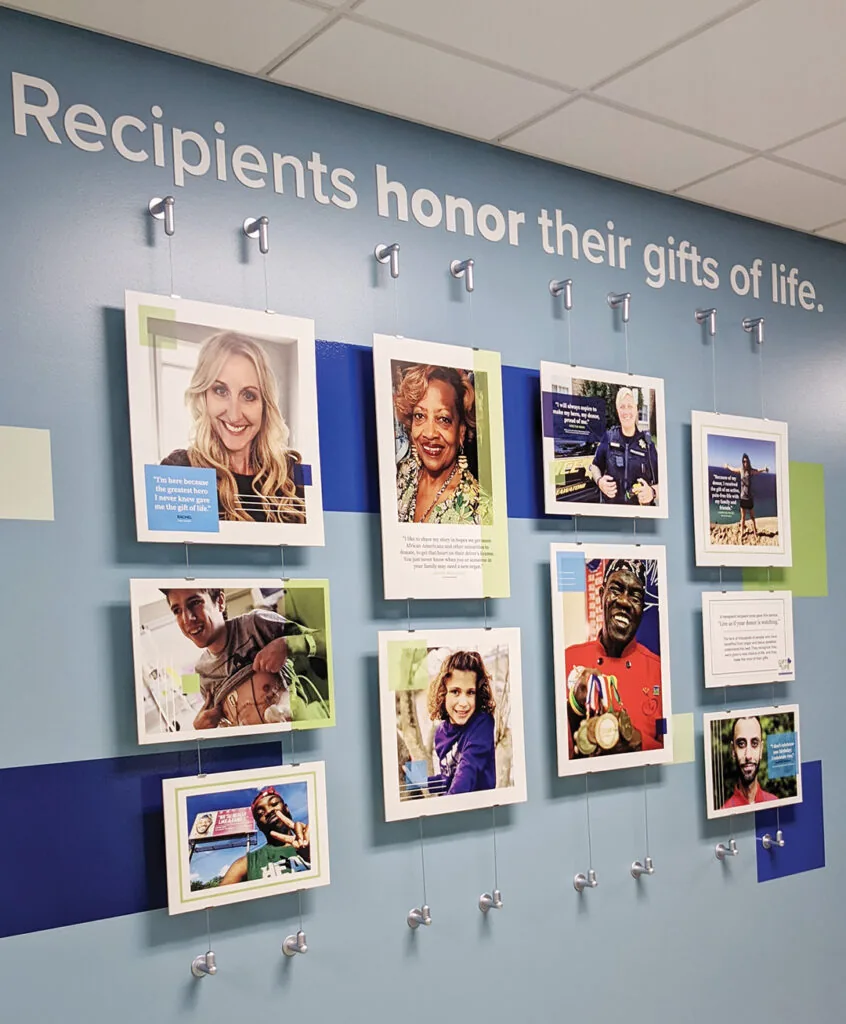Your decision to someday help others through donation cannot be overruled by anyone else
A majority (57%) of adults in Michigan are registered organ and tissue donors. Those 4.5 million people made conscious decisions to join the Michigan Organ Donor Registry so they can save and heal the lives of others after they die.
One question commonly asked: Will my family be able to overrule my decision?
The answer: No.
Here are the basic facts about first-person authorization, what it means and how it works here in Michigan and other states that adopted the Uniform Anatomical Gift Act or Law.
What is the Uniform Anatomical Gift Act or Law?
It brings the organ, eye and tissue donation process in Michigan into conformity with most other states and in line with federal requirements. The revised law took effect in 2008 in Michigan, clarifying that a patient’s decision to give anatomical gifts is non-revocable after death.
What is first-person authorization?
It means a person’s decision to be an organ/tissue donor is legally binding. If they did not register or are younger than 18, authorization for donation would be up to the patient’s legal next of kin. It’s important to share your decision with your family and talk about why you would like to be a donor.
Why can’t family members decide?
Because the law respects an individual’s choice to join the Michigan Organ Donor Registry. You took action to document your decision to give life to others, and the law protects your decision. Your family can’t reverse it, but their support in the process is still important and appreciated.
How is a family involved when their loved one is being evaluated for organ donation?
A compassionate Gift of Life team member will:
- Explain how donation works.
- Ask a family member to answer questions about their loved one’s medical and social history to help determine which organs and tissue could help others.
- Communicate with and support the family during the entire donation journey.
What happens after donation?
Gift of Life provides ongoing services that include:
- Helping families navigate the post-donation and grief process.
- Ensure the delivery of Gift of Life’s special comfort items, including blankets, teddy bears, donation advocacy bracelets and other resources for children and adults.
- Answer questions and serve as the communication bridge between families and their family member’s transplant recipients.
- All families are invited to an annual Donor Family Gathering where donors are remembered and families are thanked for helping give the gifts of life, sight and mobility.
Facts about the Michigan Organ Donor Registry
- 57% of adults in Michigan are registered organ and tissue donors.
- 4.5 million people have signed up in our state.
- A red heart on your license or state ID indicates that you have signed up.
- The Donor Registry is a confidential database managed by Gift of Life and the Michigan Department of State.
- 578 people in Michigan gave the gift of organs last year.
- 1,858 people helped thousands with gifts of tissue.
To learn more about how donation works go to golm.org/about-donation.









